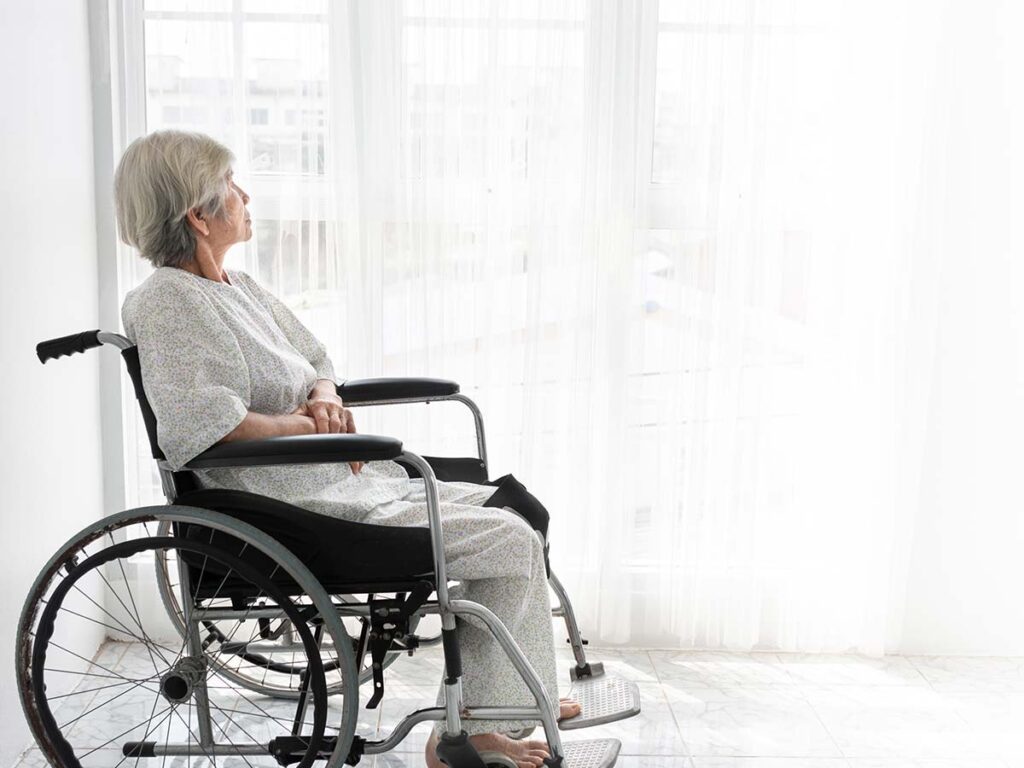The Hidden Dangers of Understaffed Nursing Homes in California
Across California, nursing homes play a critical role in caring for some of our most vulnerable citizens—older adults who need round-the-clock support, monitoring, and medical care. But behind many doors of these long term care facilities, there’s a silent and growing crisis: chronic understaffing.
While families may assume their loved ones are receiving proper care, the truth is that understaffed nursing homes place residents at a much higher risk of harm. From medication errors to severe neglect, the hidden dangers of staffing shortages can be life-threatening. This blog takes an in-depth look at how understaffing in nursing homes affects safety, the role of corporate ownership, and how families can recognize signs of danger and fight back.

The Scope of the Problem: Staffing in California Nursing Homes
California is home to hundreds of nursing home facilities, from small community-run homes to sprawling skilled nursing facilities operated by for-profit nursing homes or private equity firms. Many of these nursing homes rely on certified nursing assistants, registered nurses, and other frontline caregivers to provide essential services—feeding, bathing, turning residents, managing medications, and monitoring health conditions.
Unfortunately, in too many cases, nursing home staffing falls dangerously short of what’s needed. Federal staffing requirements set minimums, but they’re often inadequate to meet the demands of facilities where staff are stretched thin and responsible for more patients than they can safely manage.
According to multiple reports, more than half of all nursing homes in the state fail to meet recommended staffing levels to ensure adequate care. The consequences of this trend are widespread and alarming.
How Understaffing Leads to Nursing Home Neglect
Understaffing in nursing homes is more than a logistical issue—it’s a direct threat to resident care. With fewer staff members available, residents may wait hours for help to use the restroom, miss medications, or go unbathed for days. In more severe cases, residents may suffer from serious complications such as pressure ulcers, infections, or even death.
The most common types of nursing home neglect related to understaffing include:
- Failure to reposition bedridden residents, resulting in pressure wounds
- Missed or incorrect medication doses
- Delayed responses to medical emergencies
- Increased fall injuries due to lack of supervision
- Residents being left in soiled clothing or bedding for prolonged periods
- Missed signs of medical decline or mental health issues
When nursing homes cut staffing to the bone, residents can experience profound physical and emotional harm, often in silence.
Contributing Factors: Why Are Nursing Homes Understaffed?
The reasons for staff shortages are complex and often systemic:
- Low pay and high stress: Many certified nursing assistants and nursing staff are overworked and underpaid, leading to high turnover.
- For-profit ownership: When nursing homes are operated by private equity firms or corporate chains, there may be pressure to minimize costs by reducing staff.
- Limited oversight: Although the federal government sets minimum staffing levels, enforcement is inconsistent.
- Lack of accountability: Related parties, such as holding companies, may operate facilities in ways that shield owners from legal responsibility.
- Medicaid services reimbursement rates: In some cases, facilities cite insufficient funding as a reason for fewer staff members.
These financial and structural pressures create an environment where staff shortages become the norm, not the exception—leaving residents vulnerable.
The Role of Adequate Staffing in Protecting Residents
Adequate staffing is the foundation of safe, compassionate care in a nursing facility. Without enough well-trained staff, nursing home residents face delays in care, missed meals or medications, and exposure to abusive behavior from overburdened or unqualified caregivers.
Maintaining proper staffing levels also helps prevent:
- Physical abuse
- Verbal abuse
- Sexual abuse
- Emotional harm from isolation or neglect
- Preventable injuries, such as falls or urinary tract infections
Staffing levels should be adjusted based on the number of residents and their specific needs. A one-size-fits-all approach does not work—especially in skilled nursing facilities where residents often require complex medical care.
The Role of State Agencies and the Biden Administration
The California Department of Public Health plays a key role in licensing and inspecting nursing homes across the state. State agencies have the authority to investigate complaints, enforce compliance, and penalize facilities that put residents at risk.
At the federal level, the officials have announced plans to raise staffing standards and increase transparency in the nursing home industry. However, change has been slow, and enforcement remains a challenge, especially in understaffed facilities that already struggle to meet minimum requirements.
What Families Can Do to Protect Their Loved Ones
Family members are often the first to notice signs of neglect or inadequate care. If you suspect a loved one is in an understaffed nursing home, here are steps you can take:
1. Visit Frequently and Stay Involved
Regular visits can make a big difference in your loved one’s well-being and safety. Stay involved in their daily care and ask questions about their routines, medications, and interactions with staff.
2. Watch for Signs of Neglect
Be alert for:
- Unexplained injuries
- Frequent falls
- Sudden weight loss
- Pressure ulcers or bedsores
- Unchanged bedding or clothing
- Missed meals or medications
These signs may indicate that your loved one isn’t receiving adequate care due to staffing shortages.
3. Review Staffing Levels
Ask the nursing home for staffing information. Compare it to federal and state recommendations. If the facility refuses to share or seems evasive, that could be a red flag.
4. Report Concerns
You can report suspected neglect or abuse to:
- The California Department of Public Health
- The facility’s ombudsman program
- A local law firm that handles nursing home abuse
- State agencies responsible for oversight and licensing
If your loved one is in immediate danger, don’t hesitate to contact local law enforcement or an emergency room for immediate intervention.
5. Seek Legal Support
If your family member has suffered harm in an understaffed nursing home, legal rights are on your side. A knowledgeable law firm can help investigate, determine whether negligence occurred, and pursue compensation for medical costs, emotional harm, or even a wrongful death.

A Look at the Bigger Picture
The nursing home industry is in crisis, and California is not immune. Understaffed nursing homes, especially those operated by for-profit companies and private equity firms, put residents at unnecessary risk. Staffing shortages are more than an operational problem—they are a direct threat to human life.
Ensuring compliance with staffing regulations, improving pay and training for staff, and demanding accountability from nursing home owners are all essential to protecting California’s older adults.
When the system fails to provide basic needs or ensure proper care, it’s up to family members, advocates, and the legal system to step in and protect those who cannot protect themselves.
Frequently Asked Questions
Why is understaffing such a serious issue in nursing homes?
Understaffing leads to missed care, increased injuries, infections, and emotional harm. Residents in understaffed facilities face greater risks of neglect and abuse.
How can I tell if my loved one’s nursing home is understaffed?
Look for delayed responses, poor hygiene, pressure ulcers, missed medications, or general disorganization. These are strong indicators of staffing issues.
Who regulates nursing home staffing in California?
Staffing is overseen by the California Department of Public Health and federal agencies. Facilities must meet state and federal requirements to remain licensed.
What legal options do we have if our loved one was harmed?
You may be able to file a claim for nursing home neglect or wrongful death. A law firm experienced in elder abuse can guide you through your options.
Are for-profit nursing homes more likely to be understaffed?
Studies show that for-profit nursing homes, especially those owned by private equity firms, are more likely to cut staffing to maximize profits—often at the expense of resident care.
Don’t wait until it’s too late. If you’re concerned about your loved one’s safety in a nursing home, ask questions, get involved, and speak with professionals who can help ensure they receive the care and dignity they deserve.

